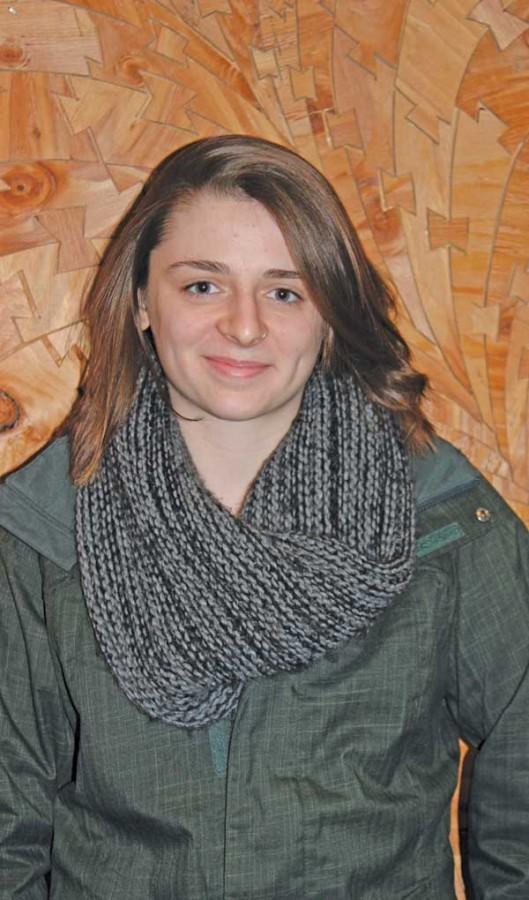JSC research groups attend conferences nationwide
Student Researcher Heather Murphy
Johnson State College student and faculty research teams across varying disciplines are set to present their findings at conferences across the United States throughout the current spring 2015 semester.
Professor of Behavioral Sciences Gina Mireault will attend the Eastern Psychological Association’s annual meeting with her student research assistants from March 5-7 in Philadelphia, to present information on her ongoing infant humor research project.
Students George Springsteon and Adam Sevi will accompany Professor of Environmental Science Les Kanat, to the Northeast Regional Meeting of the Geological Society of America from March 23-25 in Bretton Woods, N.H. Their research involves observing complex earth slide-flows ( landslides) in Jeffersonville, Vt., where at least six landslides have occurred in the past 100 years. Joining them are Professor and Chair of Environmental and Health Sciences Elizabeth Dolci, Lab Technician Erika English, and students Heather Murphy and Shayna Bennett.
Dolci’s team is presenting work from their continuous project on bacterial adaptation in a human-altered environment. This research is based on samples from the Vermont Asbestos Group Mine on Belvidere Mountain, which expands across Eden and Lowell, Vt.
Student Eliza Chevalier, as well as Bennett and Murphy, will also attend the National Conference on Undergraduate Research (NCUR) from April 16-18 in Spokane, Wash. Bennett and Murphy will present research from the same project, while Chevalier will show her work on transcriptional patterns of a species of yeast exposed to simulated mine-tailings runoff. This conference is interdisciplinary, and Dolci encourages all JSC students to participate in conferences such as NCUR for the extensive benefits that professional meetings can offer to undergraduate students.
“[Students] can make contact with potential mentors for graduate school. So it’s a comprehensive experience, and I personally feel it’s an essential element to a comprehensive education that encompasses research for undergraduates,” said Dolci.
In preparation for conferences, Dolci has her students write and edit abstracts that are submitted for acceptance by the conference. The students are then in charge of putting together a poster presenting their research. The last stage would then be actually attending the meeting.
“I think this has benefited me because I’m getting to see what actual scientific work is like,” said Murphy, who is working on an antibiotics subset of the project. “When you’re in a lab for class you don’t really understand the complexity of what you’re doing, or the big project that it all ties into. I think it’s really important to do undergraduate research to see if you actually enjoy your field and see what it’s like to present your research and talk to science faculty. Presenting is important because I’ve done the work, and now it’s a matter of actually talking about it, which can be hard to do.”
For Bennett, the chance to present what she’s been working on to a wider audience, especially with professionals, is a big plus. “I think it’s great that we have the opportunity to share what we found with the scientific community, even though we’re students,” she said.
Marilyn joined the Basement Medicine staff in Spring 2015 as a staff writer and managing editor.
Kayla served as a general assignment reporter and photographer for the spring 2013 semester. She returned for the Fall 2013 and spring 2014 semesters...



